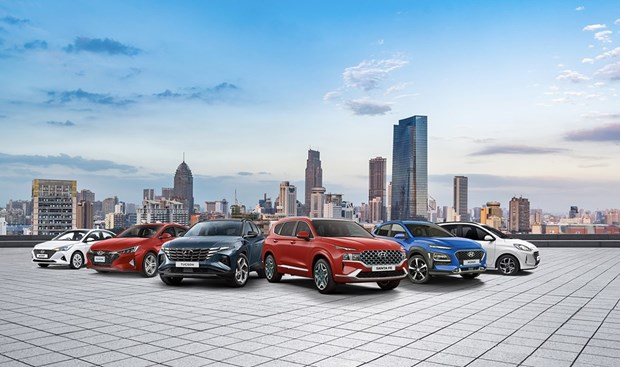The Vietnamese automobile market has continued to rebound, gaining slight growth in 2021, data from manufacturers showed.

The Vietnamese automobile market has continued to rebound, gaining slight growth in 2021, data from manufacturers showed.
The Viet Nam Automobile Manufacturers Association (VAMA) reported its members sold 304,149 cars in 2021, rising 3 per cent from the previous year, with passenger cars down 3 per cent, commercial vehicles up 17 per cent, and special-purpose ones up 50 per cent.
Among the vehicles sold, there were 168,357 domestically assembled cars and 135,792 completely built-up (CBU) units, respectively declining 10 per cent and rising 24 per cent year on year.
Apart from VAMA members, many other brands like Audi, Jaguar Land Rover, Mercedes-Benz, Nissan, Subaru, Volkswagen and Volvo also operated in the market but didn’t reveal their business outcomes.
Added to statistics from TC Motor and VinFast, which are not members of VAMA, a total of 410,390 units were sold in the local market last year.
Hyundai remained the best-selling brand in 2021 with 70,518 units, followed by Toyota (67,533), Kia (45,532), VinFast (35,723), Mazda (27,286), Mitsubishi (27,243), Ford (23,708), and Honda (21,698).
After seven years of dominating the market, Toyota Vios lost its top position as the best-selling model to VinFast Fadil, with 24,128 units sold. The following places went to Hyundai Accent, Toyota Vios, Toyota Corolla Cross, and KIA Seltos.
Insiders said the sales of passenger and domestically assembled vehicles in December grew 33 per cent and 23 per cent month on month, respectively, which was driven by the halving of registration fees for domestically assembled cars since the month.
Facing that pressure, CBU importers also cut corresponding fees to boost sales.
In another move, to boost the development of electric vehicles to meet the Government’s target on reducing emissions, the National Assembly earlier this week voted to cut special consumption tax on battery-run electric cars for a period of five years.
With effect from March 1, the tax on various types of battery electric vehicles (BEVs) will be reduced by 3-12 percentage points from current levels and be valid until February 28, 2027.
Accordingly, the tax rates on electric cars with less than nine seats, and 10-15 seats will be at 3 per cent and 2 per cent against 15 per cent and 10 per cent currently, respectively. The rate for electric passenger cars with 16-24 seats will be 1 per cent against 5 per cent currently.
According to the National Assembly’s Standing Committee, the new incentive policy will promote the purchase of environmentally-friendly vehicles and reduce emissions as targeted by the Government.
Besides, the committee added, the introduction of incentives to attract investors earlier than other Southeast Asian countries would create great opportunities for Vietnamese companies to produce BEVs for both domestic and foreign markets. A number of domestic companies are preparing to begin production of BEVs. — VNS





